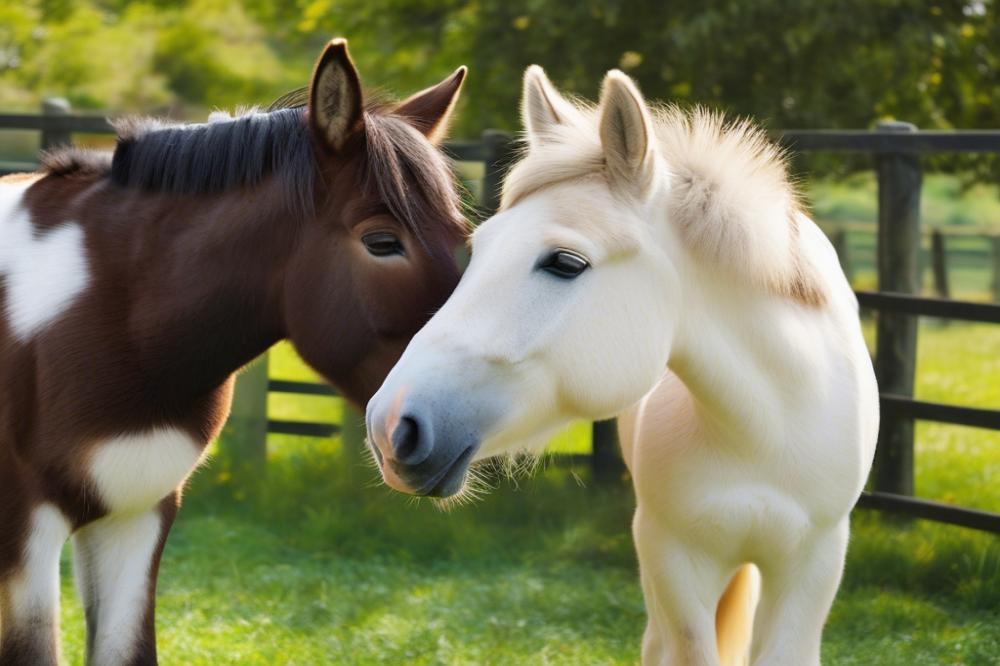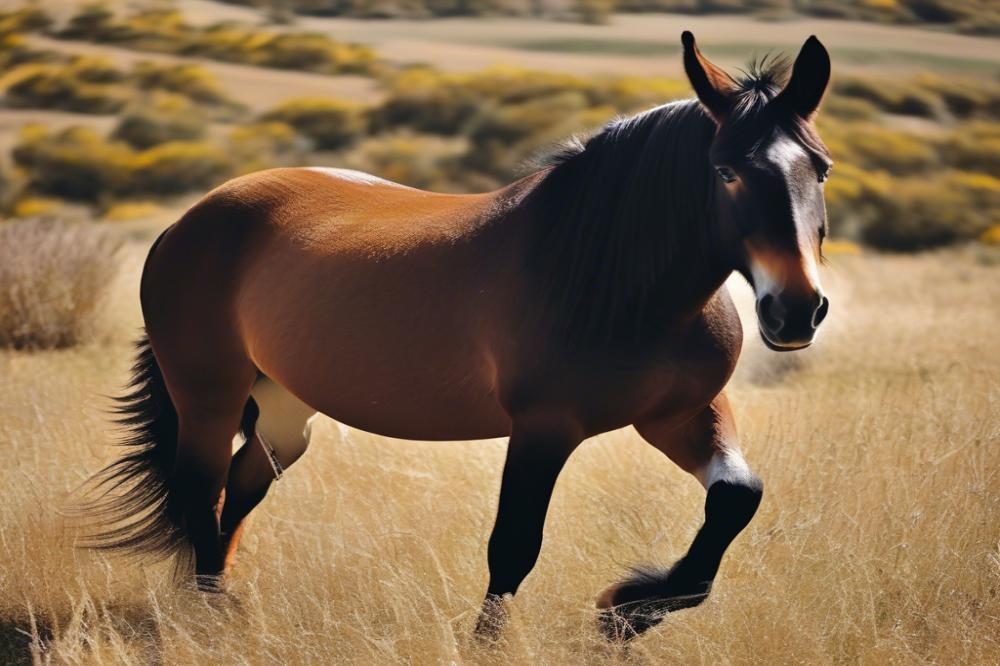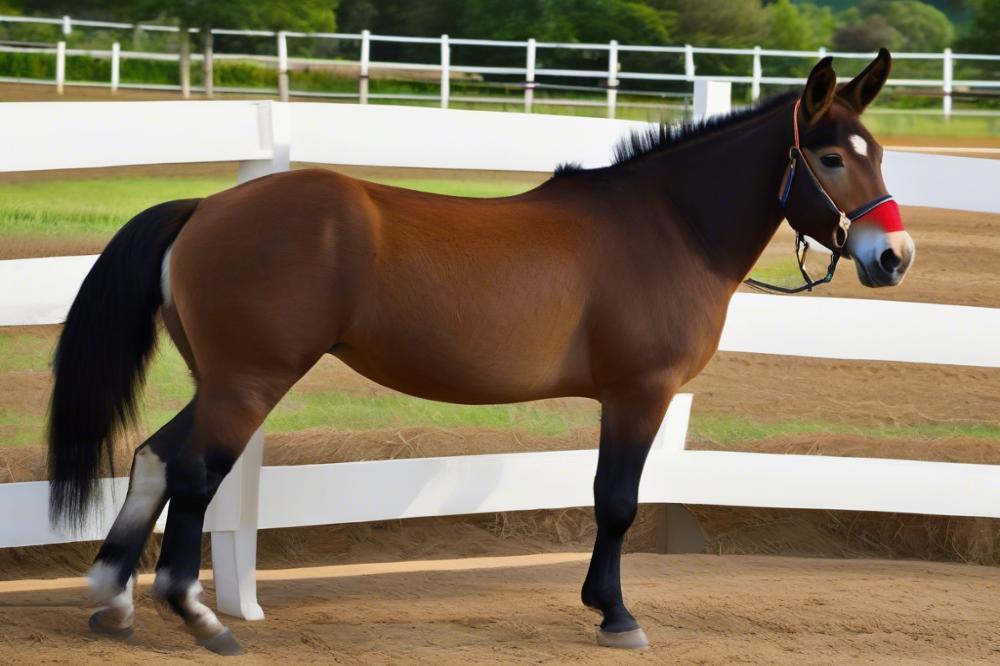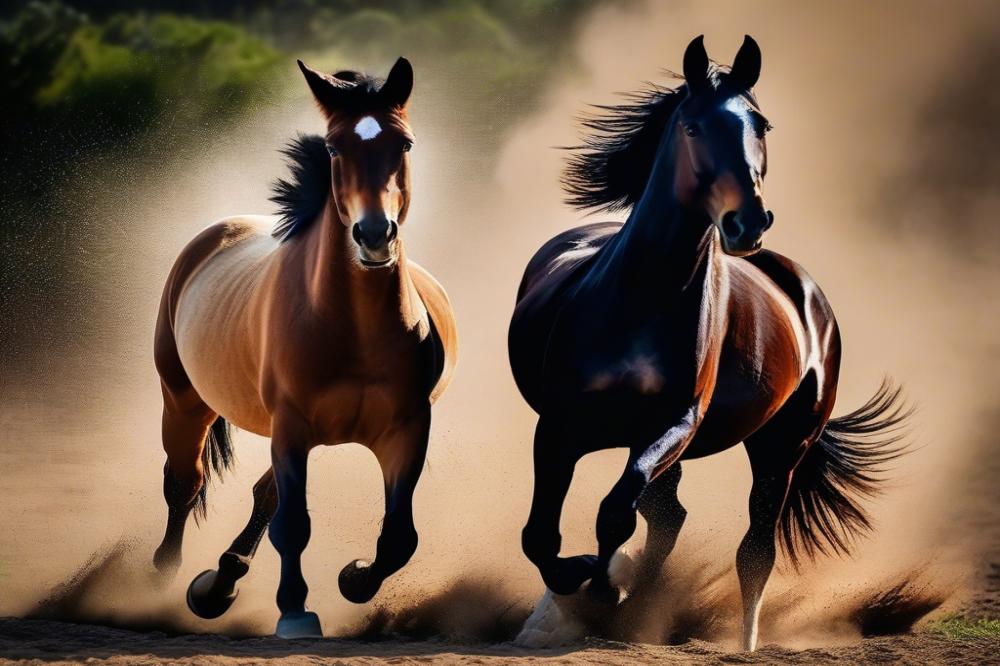Understanding Two Remarkable Animals
When it comes to four-legged friends, donkeys and horses capture our hearts in very different ways. Both belong to the equine family, yet they exhibit distinct traits that make them fascinating subjects of study. Many people may not know that donkeys have been around for thousands of years, serving as diligent workers, while horses often steal the spotlight in sports and entertainment. It’s like comparing an old, wise tortoise to a flashy hare!
Diving into the differences between these two animals is more than just a fun fact-finding mission. Grasping the variations in their care, characteristics, and abilities can significantly enhance our relationships with each. For individuals keen on donkey care or passionate about horse care, understanding these aspects helps build better connections and fulfill the unique needs of each animal. Whether you’re handling the stubbornness of a donkey or the spirited nature of a horse, knowing their specific traits can help make life easier for both the caretaker and the creature!
Why It Matters

Imagine for a moment having a Challenge Cup showdown between a horse and a donkey. Picture the rivalry, the roars of the crowd. Yet, without understanding their different strengths and weaknesses, one might unwittingly set one up for failure—and that’s no fun at all! By recognizing equine characteristics and the specific donkey characteristics, we can appreciate what makes each animal special. We can also laugh at their quirks; for instance, have you ever seen a donkey refuse to budge because it has decided that today is just not its day? It’s like watching a toddler throw a tantrum!
Furthermore, knowledge about animal abilities can improve their health and happiness. If you’re wondering if “is polo bad for horses?” you’re not alone. Many are curious about how certain activities might affect different breeds of horses. Understanding these questions helps owners make informed choices. In this article, we’ll delve deeper into the various facets of donkeys and horses, exploring their care, behaviors, and what sets them apart. Let’s saddle up and embark on this journey together!
Physical Characteristics

Size and Build Differences
Donkeys are generally smaller than horses. While a horse can tower over you, a donkey may reach just above your waist. Their sturdy build makes them look quite strong, despite their size. A typical donkey has shorter legs and a stockier body. Horses, on the other hand, come in various shapes. Some are lean and tall, while others are bulky and muscular. The differences in height can be surprising during an animal comparison. Picture a gentle giant standing next to a built little powerhouse.
Distinctive Features of Donkeys vs Horses
You’ll notice some interesting characteristics when you look closely. Donkeys have long ears that can swivel around like satellite dishes, helping them hear from far away. Horses have shorter ears, which are often perked up in interest. When it comes to tails, donkeys have a tuft of hair at the end, making it look like a little brush. Horses possess flowing tails, often used to swat away flies. Additionally, donkeys display a more pronounced, often charming, cross-shaped marking on their backs, which is a calling card in the donkey world.
Color Variations and Markings
Colors can tell a story. Donkeys often wear shades of gray, brown, or even black. They may have patches or a mix of colors, especially among different breeds. Horses flaunt an even broader spectrum. You might see them in white, chestnut, or even spotted patterns. The unique coats and markings of both animals add to their charm. Imagine a palomino horse shimmering in the sun while a dark gray donkey munches in the shade. When it comes to animal abilities, recognizing these differences helps people appreciate their individual beauty.
Taking care of these animals also varies. Donkey care often involves understanding their specific characteristics, while horse care has its own set of requirments. Overall, each creature brings its own flair to the world of equines. Whether big or small, they all have something special to offer.
Behavior and Temperament

Social Behavior of Donkeys and Horses
Donkeys and horses have different ways of interacting with each other and their humans. Horses are often more herd-oriented. They thrive in groups and feel safer when they are with other horses. Donkeys, on the other hand, can sometimes seem more independent. They might prefer a buddy but don’t always feel the need to be part of a large crowd.
When it comes to bonding, donkeys can be quite affectionate. They often develop strong attachments to their caregivers. Horses also bond well, but they can be more flighty. If something scares a horse, they might take off at a gallop. Donkeys, with their strong sense of caution, tend to think twice before acting. This characteristic makes them less reactive in sudden situations.
Training and Handling Differences
Training techniques vary between these two animals. With horses, consistency is key. They respond well to clear commands and positive reinforcement. Donkeys often present a unique challenge. They are incredibly intelligent but can be quite stubborn. This doesn’t mean they’re untrainable, though. Patience is important when working with them. A gentle approach usually works wonders, while yelling just frustrates them.
Handling a horse requires a confident demeanor. They are sensitive to a rider’s mood and can pick up on fear easily. In contrast, donkeys seem to have a knack for sensing if someone is anxious or relaxed. They often react by standing still or even ignoring commands. Think of a donkey as that one friend who sometimes needs a bit of extra convincing to join in on the fun!
Common Personality Traits
When we compare the personality traits, they each have their distinct flair. Horses are often described as curious and eager to please. They are also a little more social. Donkeys tend to be more reserved and cautious. This inquisitiveness can lead to some interesting antics.
Some people find that working with donkeys feels like having a conversation. They may seem to ponder your request before following it. Horses, while affectionate, might jump into action before you know it. Both animals possess a strong sense of self-preservation. They will try to avoid danger, but how they do it is quite different.
Succinctly, both donkeys and horses show off their own character traits in remarkable ways. Your donkey might be the philosopher, assessing the situation. Meanwhile, your horse could be the adventurous spirit, charging through what looks like an obstacle course. When it comes to donkey care, a gentle touch goes a long way. For horse care, staying calm and collected helps build trust. Each requires understanding animal abilities, but the journey is what makes it rewarding.
Uses and Roles
Historical Roles of Donkeys and Horses
People have harnessed the talents of horses and donkeys for centuries. Horses galloped into history, often seen as noble companions or war steeds. They helped transport armies, goods, and sometimes even whole families. Donkeys, on the other hand, were the hard workers of the animal kingdom. They carried heavy loads across rough terrains and served as dependable farm helpers. Many cultures relied on each for different reasons shaped by their strengths.
A donkey’s calm nature made it a wonderful friend. Folks turned to them for help with chores that required patience. Horses dazzled everyone with their speed and grace. Their power could plow fields, pull carts, or take a rider on a thrilling ride. That animal comparison highlights how different yet essential they both were to society.
Current Agricultural and Work Uses
Today, these animals still play vital roles in agriculture and work. Horses can be seen on ranches, herding cattle and assisting in various farming tasks. Some farms even use them for traditional plowing, embracing old techniques. Donkeys are just as hard at it. They love to carry heavy packs, even in areas where vehicles cannot reach. Their strength shines through in rugged landscapes.
In many developing regions, both animals are indispensable. For instance, a donkey can help farmers transport produce to markets, while horses might plow the fields. Each has its own specialties, shaped by unique equine characteristics. People appreciate how donkey care differs from horse care. These animals require different diets and environments, making ownership a distinct experience.
Recreational and Sporting Roles
Jumping into the world of leisure, both animals fill our lives with joy and excitement. Horses are the stars of many sporting events, such as show jumping and dressage. Watching a horse leap gracefully over obstacles can leave anyone in awe. Riding offers an escape from everyday worries. It’s like flying but with four legs instead of wings!
Donkeys, too, have found a niche in recreation. They participate in charming events like donkey races, which bring smiles to faces young and old. Their quirky personalities can light up any gathering. Many families enjoy petting zoos featuring these gentle creatures. Kids love feeding them and learning about their unique characteristics.
Both donkeys and horses play diverse roles in our lives. While they shine in work, there’s also plenty of fun to be had. Each brings something valuable to the table, making them special in ways we might not always recognize.
Diet and Nutrition
Dietary Needs of Donkeys vs Horses
Donkeys and horses have different dietary requirements. Both animals are herbivores, but their needs vary significantly. Horses often eat more protein and calories compared to donkeys. A horse’s diet might include grains and rich hay, while a donkey thrives on fibrous plants. The reason behind this difference lies within their digestive systems. Horses are built for speed and endurance, while donkeys are hardy creatures adapted to tougher conditions.
Grain is usually a treat for donkeys, but too much can cause issues, such as colic. In contrast, horses can handle some grain more easily, but they can also have problems if they consume too much. Balance is key for both. When it comes to feeding time, consider their age, work level, and overall health.
Foraging Habits and Grazing Practices
Foraging is second nature for these animals. Donkeys behave as natural grazers; they often roam around looking for tough grasses and low shrubs. This helps them maintain their health and keep their weight in check. Horses, however, prefer lush green pastures. They’ll gobble up the tender grass quickly, often leaving behind what they don’t like. It’s like a child picking out the green veggies from their dinner plate!
While horses munch, donkeys will take their time. They can be picky, but they also require less food. This is due to their unique digestive system, which allows them to extract every bit of goodness from their meals. Grazing patterns also differ. Horses may eat in bursts, while donkeys graze slowly throughout the day.
Health Considerations Related to Diet
Maintaining a healthy diet is crucial for both species. Donkeys can easily become overweight if overfed. Their natural ability to store fat is impressive but can lead to health problems. Issues may include laminitis, a painful condition affecting their hooves. Proper donkey care involves making sure they don’t snack on too much grain or rich hay.
Horses face their own set of challenges when it comes to nutrition. They can suffer from colic, a severe digestive upset, if they eat too quickly or if their diet changes suddenly. Ensuring a constant source of clean, fresh water is vital for both animals. Also, donkeys are very sensitive to changes in diet. A sudden switch can upset their stomachs, much like a kid who eats too much Halloween candy at once!
Feeding these animals isn’t just about filling their bellies; it’s about understanding their individual equine characteristics. This knowledge helps to promote their overall health and happiness. Pets need care and attention, and diet is one of the key areas where owners can make a real difference in their lives. Each creature has its own unique needs, so understanding these differences makes all the difference in looking after them.
Breeding and Lifespan
Reproductive differences between donkeys and horses
Donkeys and horses have interesting differences in their breeding habits. Males of both species can be quite distinct. A male donkey is called a jack, while a male horse is known as a stallion. This difference can lead to some fun confusion when talking about them! When it’s time to breed, horses are generally more vocal and flamboyant about it. Donkeys, on the other hand, tend to be a bit more reserved during the mating process.
Females also show surprising contrasts. A female horse is called a mare, and she can breed once a year, commonly producing a single foal after a gestation period. The donkey mare, however, has some tricks up her sleeve. She usually carries her baby longer; sometimes the wait can stretch up to a full year and a half! That’s quite a long time when you think about it.
Gestation periods and offspring care
Now, let’s dive into gestation periods. As mentioned, horse gestation is roughly 11 months, just about the same as a human! After giving birth, the care for a newborn foal is rather intensive. Mares are diligent mothers, often staying very close to their young ones. They make sure their foals learn to stand and walk quickly after birth.
Donkey care looks a little different. Their foals, known as jennets if they are female and jacks if they are male, typically need extra nurturing. The jenny (female donkey) takes her time. She ensures her young one develops in a safe environment. In many cases, the bond between donkey and foal is incredibly strong, and jennies are often seen protecting their offspring from any potential threats.
Lifespan comparisons
Lifespan is another area where these animals show their differences. Horses usually live for about 25 to 30 years, though some can exceed that with the right care. Their lifespans can sometimes be impressive! Donkeys, however, can live much longer. If well cared for, they can reach ages of 30 to 50 years. That’s quite a legacy!
Both species face similar health challenges as they age. Regular veterinary check-ups are crucial for both types of equine companions. Horse care focuses on monitoring their diets, teeth, and overall health. Donkey care is similar, though it may center more on hoof health due to their unique grazing habits.
In this animal comparison, it’s clear that there’s more than meets the eye when it comes to donkeys and horses. Each carries its own charm and complexity, making them remarkable creatures in their own right.
Cultural Significance
Symbolism and Representation in Cultures
Donkeys and horses have different ways of being viewed around the world. In many cultures, a donkey can symbolize humility and hard work. Think about how often we see them carrying heavy loads in movies or stories. Horses, on the other hand, often represent power and freedom. They gallop gracefully, capturing our imaginations. People have used these animals in art, storytelling, and even religious symbols for centuries. While the horse gallops into the sunset, the donkey plods along, steady and loyal. Both animals have earned their spots in our hearts and minds.
Folklore and Mythology Surrounding Donkeys and Horses
Stories featuring donkeys often have a humorous twist. For example, Aesop’s fables includes donkeys that are clever but sometimes foolish. In contrast, horses appear as noble steeds in tales of knights and heroes. Many myths portray horses as magical creatures, such as Pegasus with wings. In other cultures, donkeys may be considered wise, maybe even sage-like. Tales from different traditions highlight the distinct animal characteristics each embodies. One could argue that donkeys embody wisdom through patience, while horses often symbolize bravery and adventure.
Impact in Art and Literature
Art has long depicted these animals, each leaving its own mark. Paintings featuring horses often show their grace and strength. Famous artists like Leonardo da Vinci celebrated the beauty of equines in their works. In contrast, donkeys might be featured in a more comedic light. A classic example is the portrayal of donkeys in cartoons—often clumsy yet charming. Literature tells a similar tale. Books featuring donkeys often display their loyalty and hardworking nature. From “Shrek” with its lovable donkey to classic stories of horses on epic journeys, each animal shines in its own unique way.
Exploring this animal comparison reveals much about human emotions and values. The traits we associate with each creature shape how they fit into our lives. Whether you’re caring for a donkey or a horse, understanding their distinct traits can make all the difference. Donkey care often requires patience and a gentle touch, while horse care may demand speed and agility. Ultimately, each animal offers a different kind of companionship, filled with its own stories and wisdom.
Final Thoughts on Donkey and Horse Dynamics
In wrapping up our discussion about donkeys and horses, it’s crucial to highlight some key points. First, donkeys and horses are distinct creatures with different traits and abilities. Understanding these differences can help us appreciate their roles in our lives. For instance, donkeys are generally more stubborn but are fantastic at carrying loads, while horses are built for speed and agility. Each animal brings its own strengths to the table, whether it’s for hard work or enjoyable rides.
Recognizing these unique characteristics allows us to create better environments for both. Consider what a horse habitat and food look like compared to that of a donkey. Horses thrive in open pastures where they can gallop around, while donkeys prefer more compact spaces. This knowledge can guide caretakers in providing the best possible care, ensuring both types of animals remain healthy and happy.
Don’t forget about the bond between humans and these animals. Sometimes there’s nothing quite like watching a well-trained horse race around a field or a donkey quietly carrying a load. These moments can brighten anyone’s day, and they remind us that, despite their differences, both animals offer immense value. While training can vary, for instance, in draft horse training, the principles of respect and understanding remain the same.
Humorously, when you mix a donkey and a horse, it’s like blending oil and water; they just don’t mix! They each have their quirks that make them special in their own right. It’s almost as if they have their own personalities that can make life quite entertaining. So, the moral of the story? Embrace the oinking, hee-hawing, galloping, and trotting. Each critter brings something to the mix of life in the barnyard.
In a nutshell, while donkeys and horses might seem similar at first glance, they stand apart in their behaviors, habitats, and roles. It’s essential to appreciate these distinctions, not only for their well-being but also for our enjoyment. Their differences enrich our lives and remind us of the beautiful diversity in the animal kingdom.



